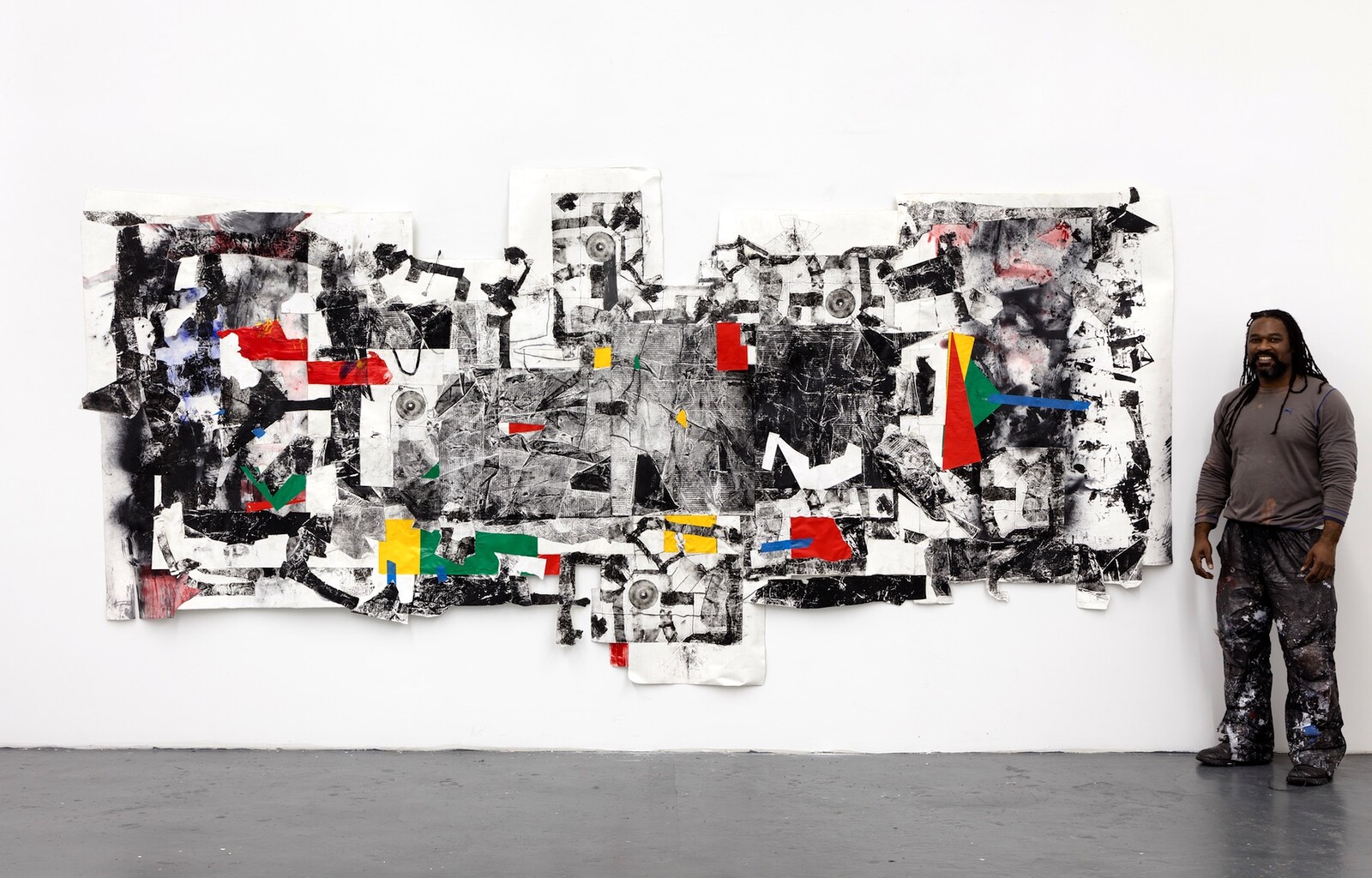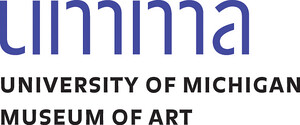525 South State St.
Ann Arbor, MI 48109
United States
Hours: Tuesday–Wednesday 11am–5pm,
Thursday–Friday 10am–8pm,
Saturday–Sunday 11am–8pm
T +1 734 647 0395
In advance of the 2020 US election, UMMA begins a year-long investigation into the practices, threats to, and performance of democracy and the law in a series of exhibitions and programs.
Cullen Washington’s monumental series “Agoras” ruminates on public life
Cullen Washington, Jr.: The Public Square looks back to the earliest forays into democracy, the Greek Agora, considering how ancient ideals of democracy find life and contradiction in the public spaces and institutions we occupy today.
This is the first US solo show for Cullen Washington and it displays his dramatic recent series of monumental abstract collage paintings, called “Agoras,” which explore the idea and ideal of a gathering site that functions as a city’s center of artistic, spiritual, and political life.
In response to this theme, a public assembly and programming space sits in the center of the exhibition, activated by excerpts of speeches by Maya Angelou, James Baldwin, Kofi Annan, John F. Kennedy, and Barack Obama; all ringed by Washington’s soaring collages.
The Public Square is on view January 25–May 17, 2020.
Witness Lab complicates our relationship to justice
In February, UMMA opens Witness Lab, from Roman J. Witt Artist in Residence Courtney McClellan. The exhibition collapses theater, courtroom, and artist studio by showcasing performances of the law in action. Witness Lab will host everything from mock trials and re-enactments to play productions and class lectures. Museum public are invited to attend all performances and classes.
McClellan’s Witness Lab is part of the artist’s ongoing research into who performs the role of witness in our society, how that understanding compares with the narrower legal definition of the role, and how courts use performance to establish truths and mold perception.
“Witnessing is an act of keen observation, but it’s also an act of retelling,” McClellan says. “It’s inherently subjective. In 2020, I want people to consider the complex truths found through shared storytelling.”
Viewers and students will be asked to document the proceedings from their perspective via courtroom sketches, video recordings, hand-written notes, photography, and more—creating an interactive, evolving installation.
The project is a collaboration between UMMA and the U-M Stamps School of Art & Design.
Witness Lab is on view February 15–May 17, 2020.
Abstraction, Color, and Politics in the ’60s and ’70s: Kaleidoscope explores abstraction as protest
Kaleidoscope is the third and final exhibition in the year-long Abstraction, Color, and Politics series at UMMA. The latest installment unpacks the evolving practice of abstract art in the United States and its role in political discourse and protest movements.
As the 1970s progressed, women artists and black feminist artists assertively explored abstraction’s possibilities during an era of profound experimentation. They collaged, cut, weaved, and punched their materials with a focused physicality. Kaleidoscope features works by Anni Albers, Jennifer Bartlett, Louise Fishman, Helen Frankenthaler, Howardena Pindell, Dorothea Rockburne, Anne Truitt, and others.
Kaleidoscope is on view February 22–October 25, 2020.
Finally, throughout the winter, UMMA is continuing the sleeper blockbuster Take Your Pick, an experiment in another mainstay of democracies—voting. For the last several months, museum visitors have been voting (and voting, and voting) for their favorites among 1,000 found vernacular photographs from the collection of Peter J. Cohen.
More than 100,000 votes were cast, and the top 250 vote-getters are now on view until February 23. Chosen by museum visitors, they will be donated by Cohen and accessioned into UMMA’s permanent collection.
For a complete list of UMMA’s exhibitions and programs, please visit umma.umich.edu.



